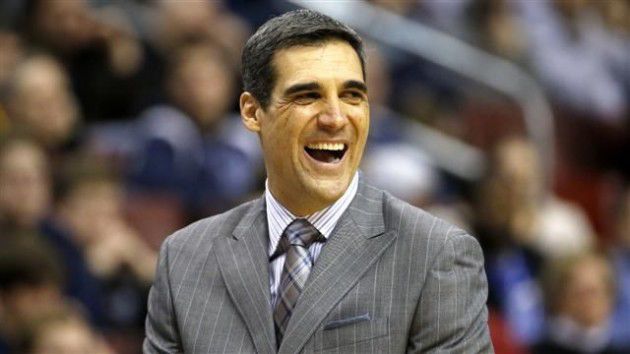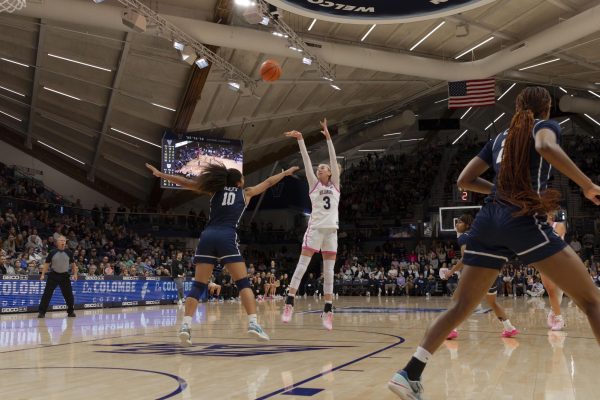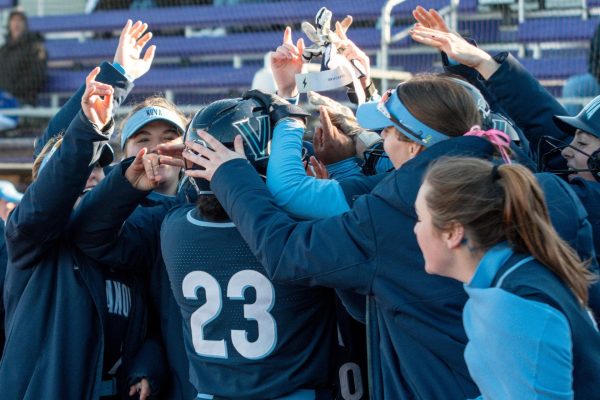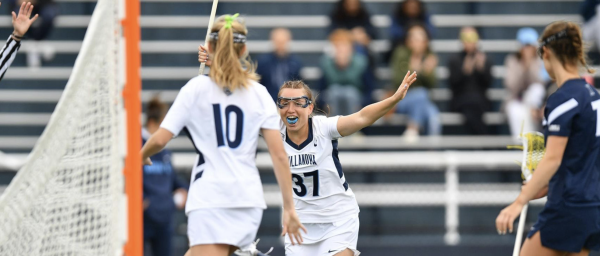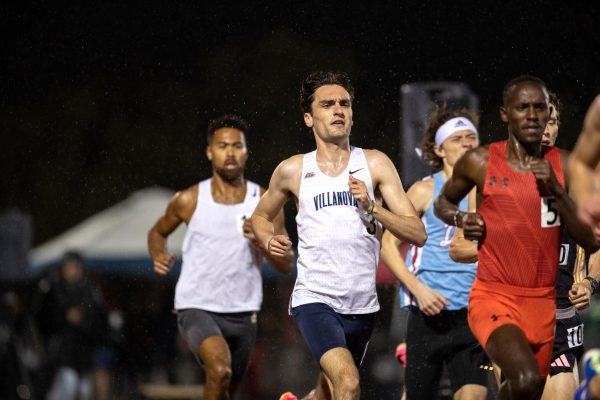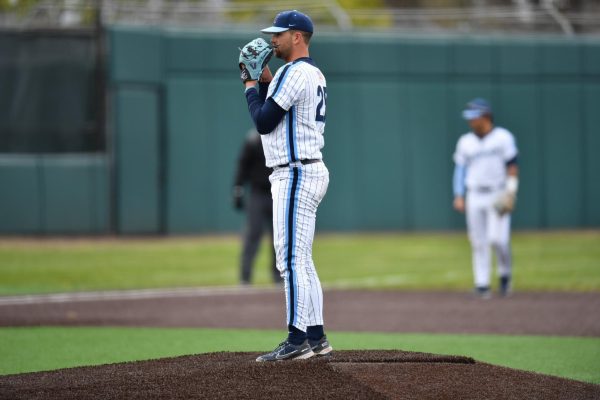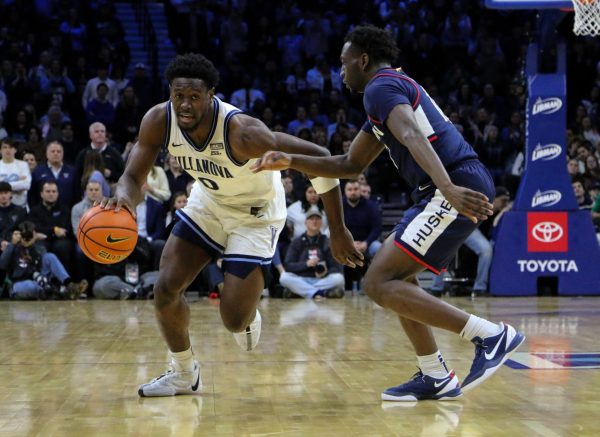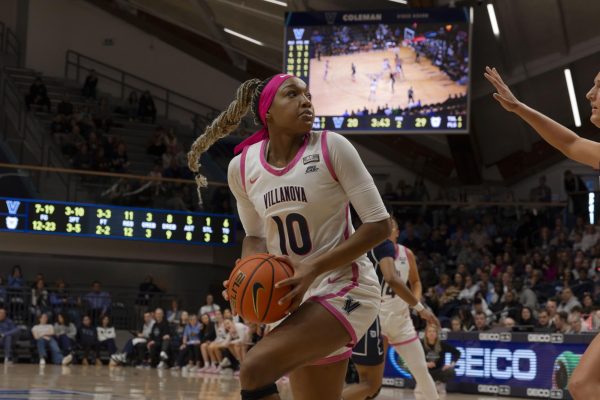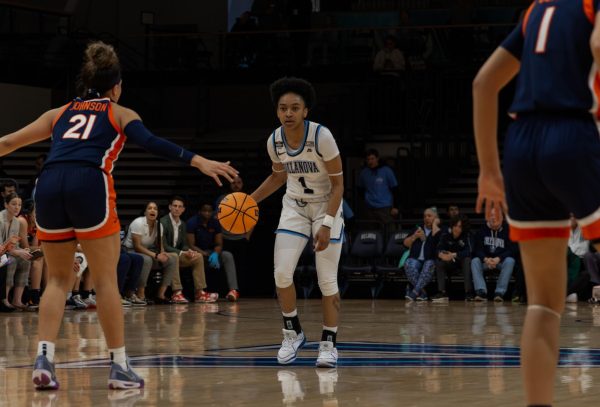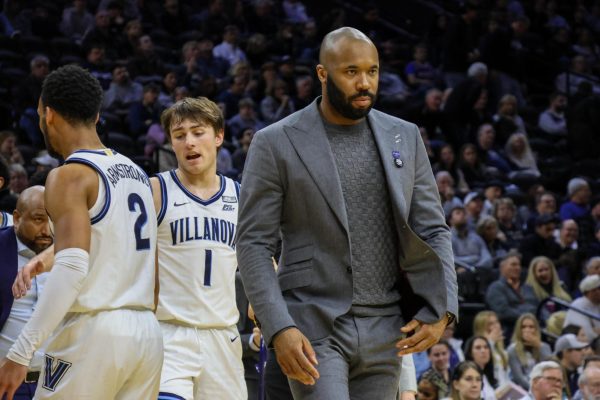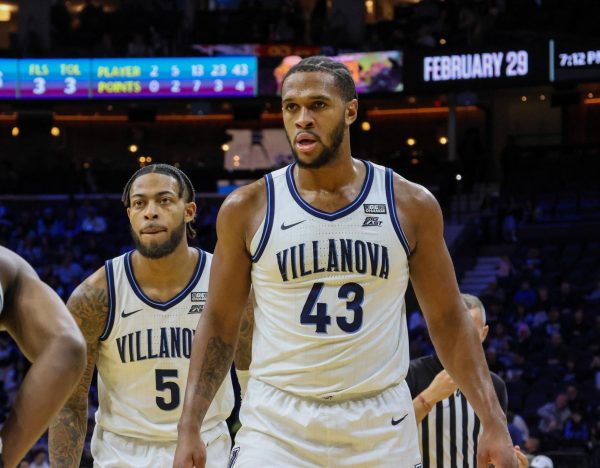Coaches, serving as father-figures, should be role models
February 10, 2016
It began with a jump-ball.
Steve Alford, formerly a scrappy guard on Bobby Knight’s 1984-85 Indiana Hoosiers, complained about the call and looked for the approval of his coach.
Knight began to raise his voice and pace along the sideline.
Within two seconds of inbounding the basketball, Darryl Thomas gets called for a ticky-tack hand-checking call.
Some more bickering. Heads shake. The crowd boos.
Then it happened. Knight, furious at the officiating, lifted and hurled his blood-red chair across the court, sliding just inches from a woman sitting in a wheelchair. Throwing the chair wasn’t enough for Knight, who confronted the officials and scolded them with a bony, outstretched index finger.
The Knight’s squires didn’t hold him back. The athletic director and assistant coaches also marched onto the court and attacked the officials with obscenities.
The Indiana fans chanted “Bob-by! Bob-by!” and gifted their hero and savior with a standing ovation for his masterful performance.
February 23rd, 1985 was a disgraceful day, not just for the losing Hoosiers, but for its everlasting impact on the definition of a “coach.”
“That’s the beauty of coaching,” legendary high school basketball coach Morgan Wootten once said. “You get to touch lives. You get to make a difference.”
The role of a coach should be to mentor young adults and teach them life lessons, not just to win games for an institution. How are athletes supposed to be role models when their coaches are indifferent to upholding a high standard of conduct?
Athletes get a pass in the role model discussion, as do fans who enable derogatory behavior from their beloved players and coaches. Fine.
But coaches? To whom much is given, much is expected.
Their job is to coach, to mentor, to inspire. If he isn’t doing his job, not winning but touching lives, then what is a coach good for?
Absolutely nothing. Say it again.
Sometimes, despicable coaches are only good for their ability to add chalk in the win column. Think of Rick Pitino and Joe Paterno. This bottomless pit of coaches with sleazy personalities rubs off on aspiring, copycat coaches at the youth or high school level.
Consider a less well-known name, Jerry Devine. Devine, Ryan Arcidiacono’s high school coach, head-butted an official after a suspect charge call. Although the Villanova senior supported his former coach, Arcidiacono was nevertheless “shocked,” according to CSN Philly, at what he saw.
Consider a tale my father, a high school all-star in the state of Kentucky, once told me. After numerous bad calls, his coach told the team they were boycotting the game and ushered his players to the locker room. His minions, including my father, followed their role model downstairs.
The locker room stunk of Converse canvas and quitters.
Get over yourselves, coaches. A bad call won’t ruin your life.
But head-butting an official or quitting mid-game? That could send you and your family packing in a hurry.
The structure of a sports team mirrors the configuration of a family. The players sit on the turf or court like hungry birds in a nest. The coach nourishes his players with important nuggets of wisdom.
When Tom Caughlin was fired as the New York Giants coach last month, several of his players took to “The Players Tribune” to talk about how Caughlin ended up becoming more than a coach, but also a father figure.
“He was also like a father to me and a lot of the other guys,” Giants WR Victor Cruz wrote.
“He became more of a father figure than a football coach,” former DE Justin Tuck added.
“We stopped viewing him as a boss, and more like a father figure who just wanted the best for us,” Michael Strahan, another former DE, contributed.
The evidence is obvious: players feel the need to relate with their coaches at an emotional level rather than just discuss the “X’s and O’s” of the game. This connection, as the Giants players stated explicitly, resembles that of the father-son relationship.
There is arguably nothing more devastating for a young man than when his father disappoints. Fathers have been known to yell, curse, and, yes, even throw a chair. But the best fathers always rise to the occasion, not for their own sake but to be the shining example young adults so desperately need.
As coaches adopt the persona of a father, it is their responsibility to act like a role model and realize that their players are their second family, their children. Only then can a coach be a knight in shining armor.

